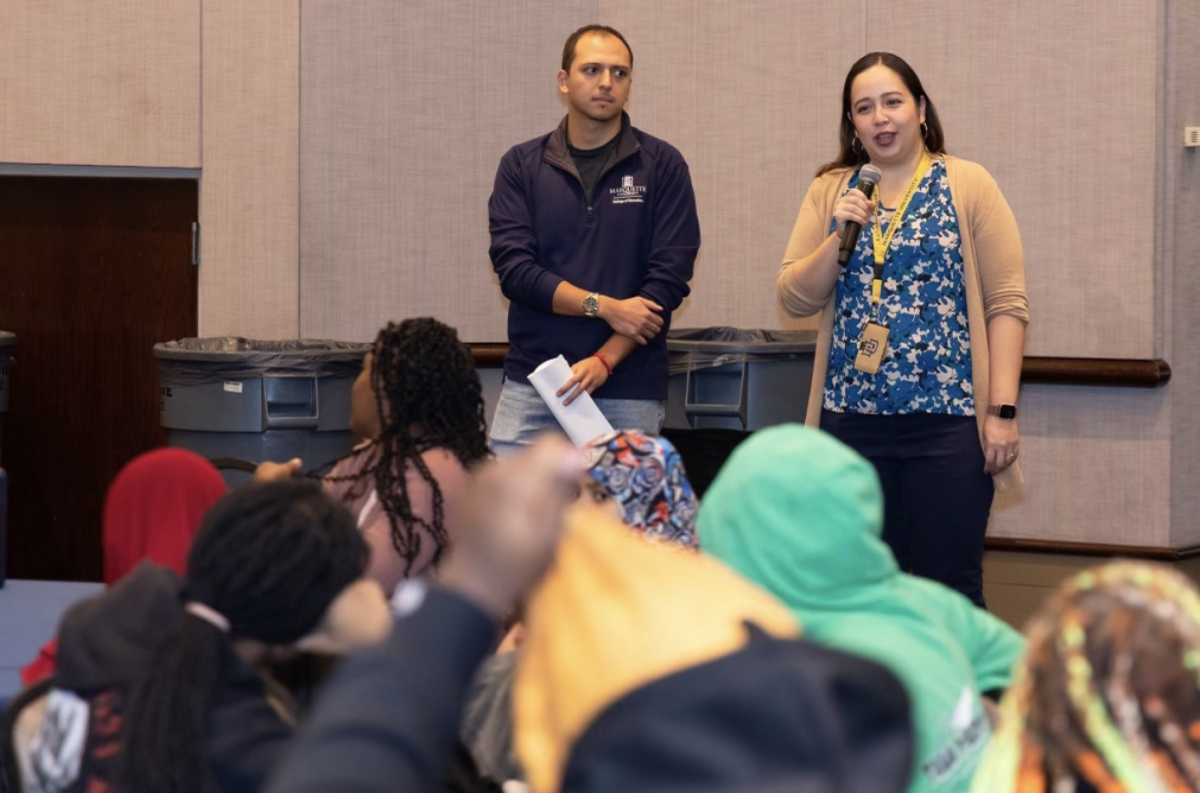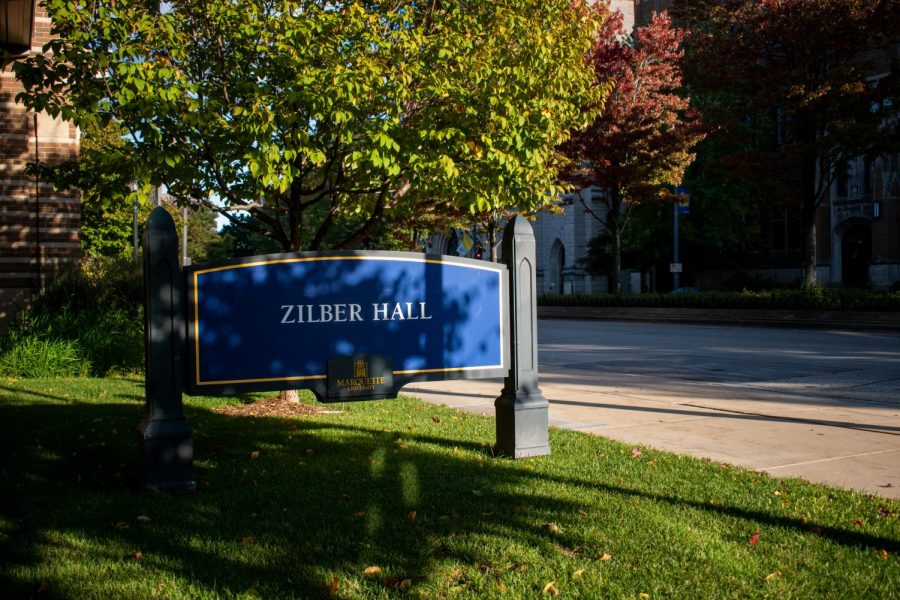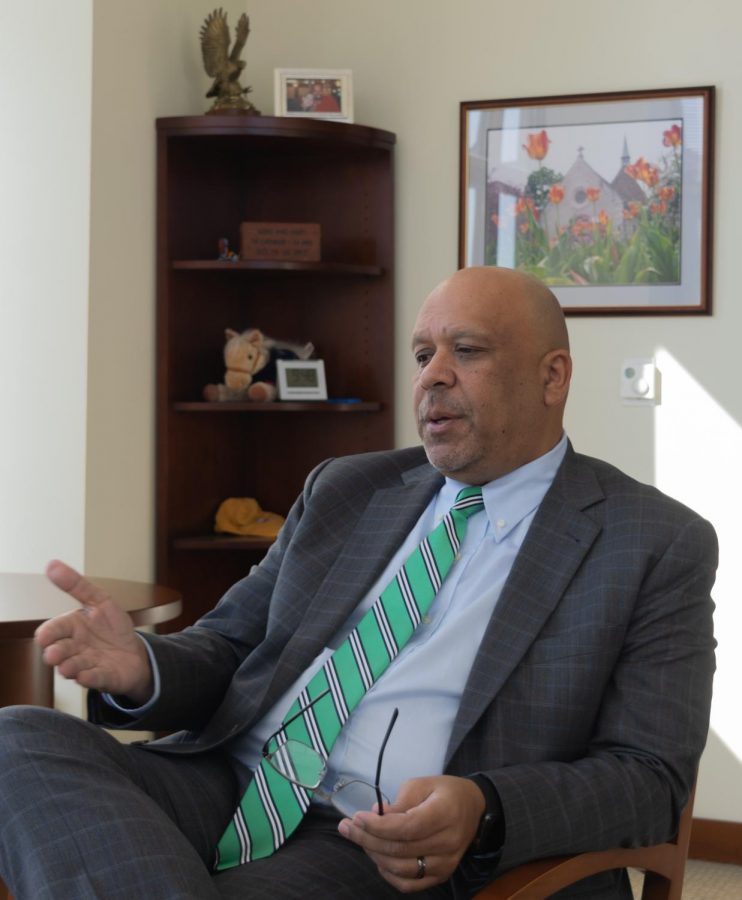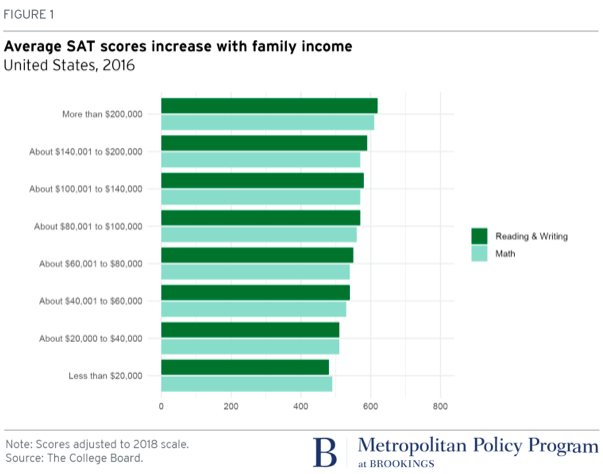
A Marquette Law School poll released at a conference Wednesday suggests many Wisconsin voters still consider themselves uneducated on the subject of charter schools. While 42 percent of voters have favorable views of charter schools and 16 percent view them negatively, 42 percent of respondents said they do not know enough about the issue to form an opinion.
The study was presented Wednesday at a conference titled “Charter Schools: Assessing the Present, Looking to the Future,” co-sponsored by the Law School and College of Education. The conference brought experts – including former teachers, researchers and journalists – to the table to discuss charter school performance and perceptions on both the local and national level.
“As a topic, I find it very complicated and very provocative,” said College of Education Dean William Henk.
Charter schools are publicly funded but privately owned schools that typically have more flexibility in their curricula. Charter schools retain autonomy from state regulations and are created by contracts between the government and a school board or a chartering authority. According to the Wisconsin Department of Public Instruction there are 237 charter schools in Wisconsin, with more than 1.6 million listed nationally by the National Center for Education Statistics.
Though not as controversial in Milwaukee as voucher schools, charter schools are still regarded as a complex issue. According to the poll released at the conference, the state’s perception of charter schools is mixed. While a majority of voters agree charters provide more flexibility and choice, voters were more evenly split when asked whether or not they believe charters take money away from public schools.
In addition, 24 percent of respondents called for an increase in the number of charter schools, 22 percent said they wanted to decrease the number of schools and 47 percent wanted to maintain the current status quo.
Despite Wisconsinites having varying views about charters, most of the event’s speakers were largely optimistic about the opportunities they can provide.
Macke Raymond, director of the Center for Research on Education Outcomes at Stanford University, was among the more neutral speakers at the conference and presented CREDO statistics regarding charter schools on a national scale.
According to a CREDO study, charter schools on a national level performed slightly worse in both math and reading in 2009. However, results varied considerably among states and students, with minority and English Language Learner students performing better in charter schools. Cities and states considered to have found success using charter schools include New Orleans, New York City, Boston, Michigan, Indiana and Missouri. In particular, Raymond noted that urban areas enjoy a high and sometimes “stunning” level of success.
“There are great things happening in urban charter schools,” Raymond said.
Despite the educational promise suggested by such findings, however, Raymond emphasized the critical need for authorizers to closely monitor the performance of charters. A charter’s achievements during its first three years is a good indicator of its long-term performance, Raymond said.
The most heated conversation came toward the end of the conference when a panel of local figures presented their opinions.
Panelists included Ronn Johnson, the head of the Youth Leadership Academy, a charter school in Milwaukee; Robert Kattman, the former director of the Office of Charter Schools at the University of Wisconsin-Milwaukee; Bob Peterson, the president of the Milwaukee Teachers’ Education Association; and Carrie Bonk, the executive director of Wisconsin Charter School Association.
While Bonk advocated for more oversight and authorizing officials to improve charter school performance, Peterson was the only panelist at the event openly opposed to charter schools.
“Unfortunately, the charter movement has become the darling of conservative ideologues, entrepreneurs who see a big pot of money in educations and elites, who think they are smarter than the rest of us,” Peterson said.
Peterson called for Milwaukee Public Schools to serve as the chief operator of educational services.
“At the end of the day, Milwaukee Public Schools is the only educational institution in this city that has the capacity, commitment and legal obligation to educate all children,” Peterson said. “Some sing praise of school choice. But what we have here in Milwaukee is not school choice. What we have here is abandonment, hyper-segregation, disenfranchisement and privatized, consumer-based solutions to very complex social problems.”
Peterson’s opinion was not highly regarded by the audience, with Johnson’s more bipartisan approach more warmly received by conference attendees.
“I’m not pro-charter, pro-choice, pro-public, pro-private,” Johnson said. “I’m just pro good schools.”







